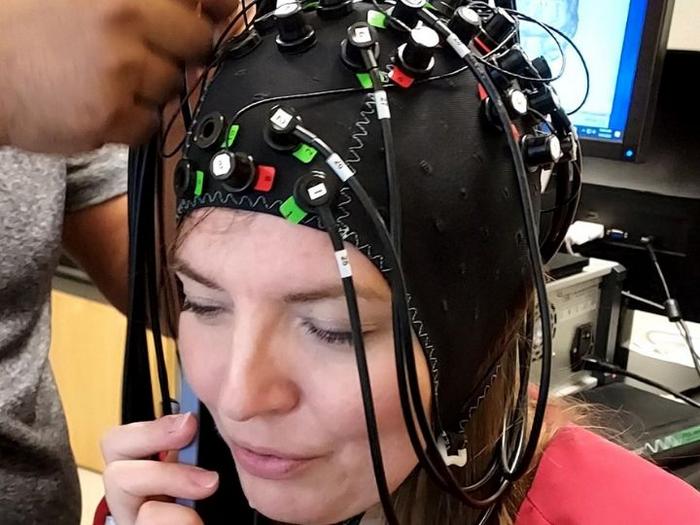As if menopause isn’t enough of an assault on a woman’s body, couple it with Type 2 Diabetes (DM), sleep apnea and inflammation, and you’ve got a destructive combination that just might lead to dementia in later life. With a $1.4 million grant from the National Institutes of Health, Stacey Gorniak, associate professor of health and human performance, is set to learn how the confluence of factors predispose women to dementia.

Credit: University of Houston
As if menopause isn’t enough of an assault on a woman’s body, couple it with Type 2 Diabetes (DM), sleep apnea and inflammation, and you’ve got a destructive combination that just might lead to dementia in later life. With a $1.4 million grant from the National Institutes of Health, Stacey Gorniak, associate professor of health and human performance, is set to learn how the confluence of factors predispose women to dementia.
While more than 34 million persons in the U.S. are living with Type 2 Diabetes, Gorniak will focus on underrepresented women as they have the highest risk for dementia development throughout their lives and are all but absent in research, which to-date has included only white non-Hispanics.
“Adult females who belong to underrepresented racial and ethnic groups are most negatively impacted by risks and complications associated with Type 2 Diabetes, including functional impairment in cognitive and sensorimotor actions,” said Gorniak. “The severity of these complications has been described as everything from ‘devastating’ to ‘difficult to control.’”
Gorniak will recruit 20 women with DM (aged 30-65) within the greater Houston area, assessing also those who are perimenopausal. Gorniak will collect pilot data from the women to help identify the specific sex-hormone, inflammation and obstructive sleep apnea (OSA) associations with lower cortical tissue oxygen use and functional impairment that occurs with DM. OSA occurs in 50-86% of persons with DM.
“By better understanding how inflammation, hormone status and presence of sleep disorders work together to impact memory and brain function in middle aged women, we can potentially improve early diagnostic markers and develop comprehensive treatment plans for women who show an early indication of dementia or are at high risk for conversion to dementia,” said Gorniak.
Gorniak is an expert in such matters. In previous work she provided insight into the compound contributions of menopause and inflammation to cortical tissue oxygen use and functional impairment in underrepresented postmenopausal women with DM.
“Our project aligns with the National Institute of Aging objectives and priorities to identify strategies to effectively prevent or delay age-related diseases, including dementias such as vascular dementia,” said Gorniak.
The Houston-based investigative team led by Gorniak includes experts Dr. Randall Urban (sex-hormone endocrinology), University of Texas Medical Branch; Dr. Reeba Mathew (pulmonology), Memorial Hermann Health System; and from the University of Houston: Candice Alfano (sleep), Luca Pollonini (tissue oxygenation measurement), Emily LaVoy (inflammation biomarkers) and Ann Chen (biostatistics).




